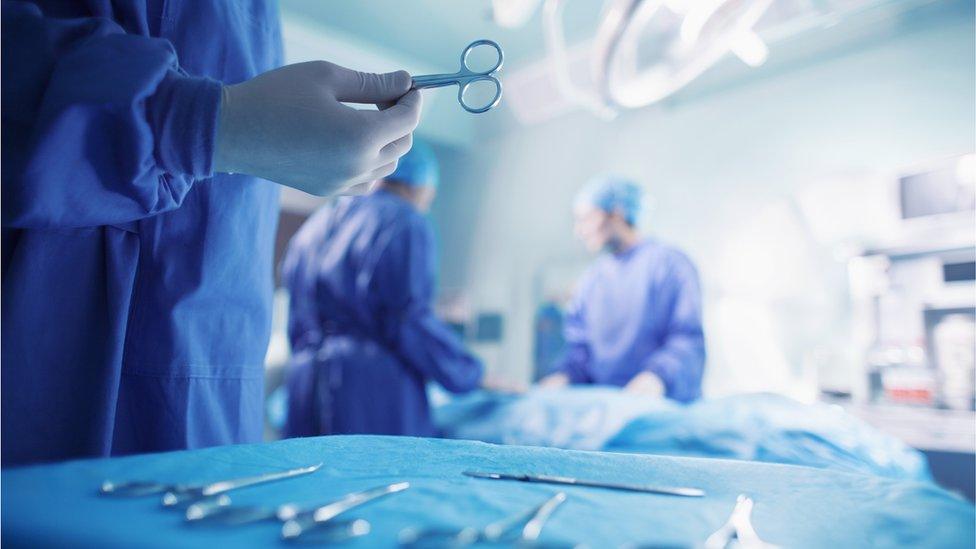Severe allergic reactions in surgery 'caused by antibiotics'
- Published

Antibiotics are the main cause of life-threatening allergic reactions during surgery, a new report suggests.
The Royal College of Anaesthetists says more patients are claiming to be allergic to penicillin, leading to other riskier antibiotics being used.
Out of nearly 300 life-threatening reactions, there were 10 deaths in one year in the NHS in the UK.
Anaesthetists said some of the deaths could have been prevented.
in the operating theatre is a life-threatening reaction to a drug that happens without warning.
In extreme cases, it rapidly progresses to cardiac arrest or even death.
There are around 3 million anaesthetics given to patients in NHS hospitals each year and the vast majority "are safe and uneventful", the report says.
However, the risk of life-threatening reactions is around one in 10,000 operations.
Allergy clinic waits
It was previously thought that muscle relaxants were the main culprit, but this report has found nearly half of all anaphylaxis cases were caused by antibiotics administered to prevent surgical infections.
Teicoplanin was found to be the antibiotic with the highest risk of anaphylaxis and is regularly used for patients who say they are allergic to penicillin.
The report concludes that some of the antibiotic-related deaths could have been prevented if the true risk of allergy had been identified.
But waiting-lists for allergy clinics are, on average, more than three months, when they should be no more than six weeks.
The report says up to 90% of patients who say they have a penicillin allergy are in fact not allergic.
'Prompt action'
They recommend that antibiotics should be given while the patient is still awake, so any adverse effects can be assessed, and patients' allergy histories should be recorded more efficiently before operations.
The report also suggests that anaesthetic teams should be better trained to enable them to treat anaphylaxis quickly.
Report author Prof Tim Cook said: "More than 95% of patients survive life-threatening anaphylaxis because of timely detection and prompt action by their anaesthetist and the wider medical team.
"However, our research highlights the importance of this topic and shows evidence of new and growing risk factors.
"We need to see improved reporting of these cases, better investigation after anaphylaxis and investment and expansion of peri-operative allergy clinics."